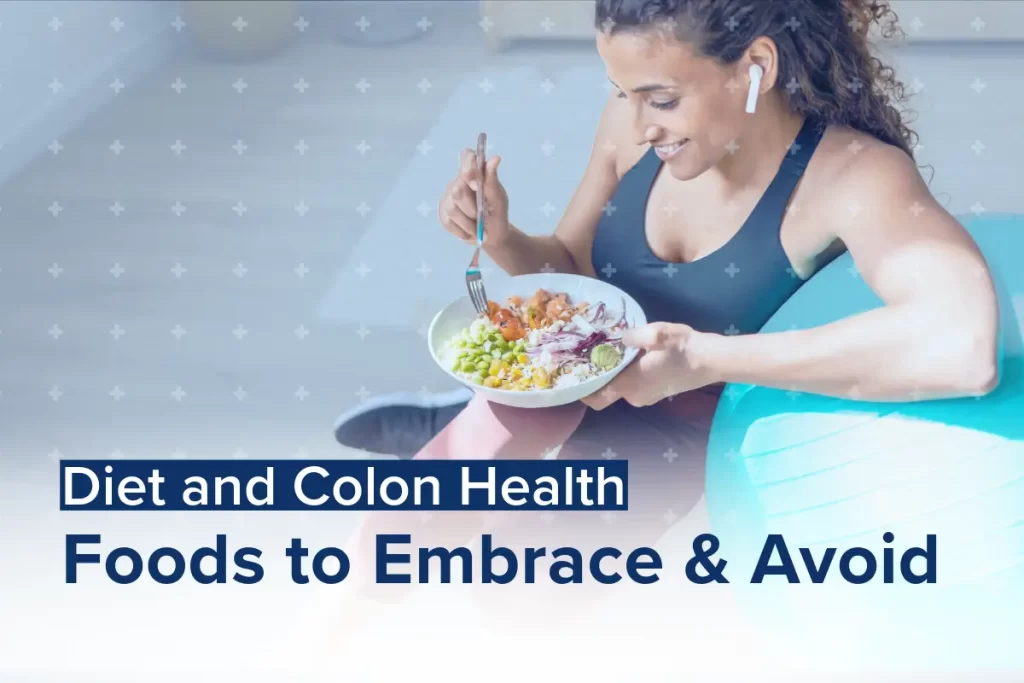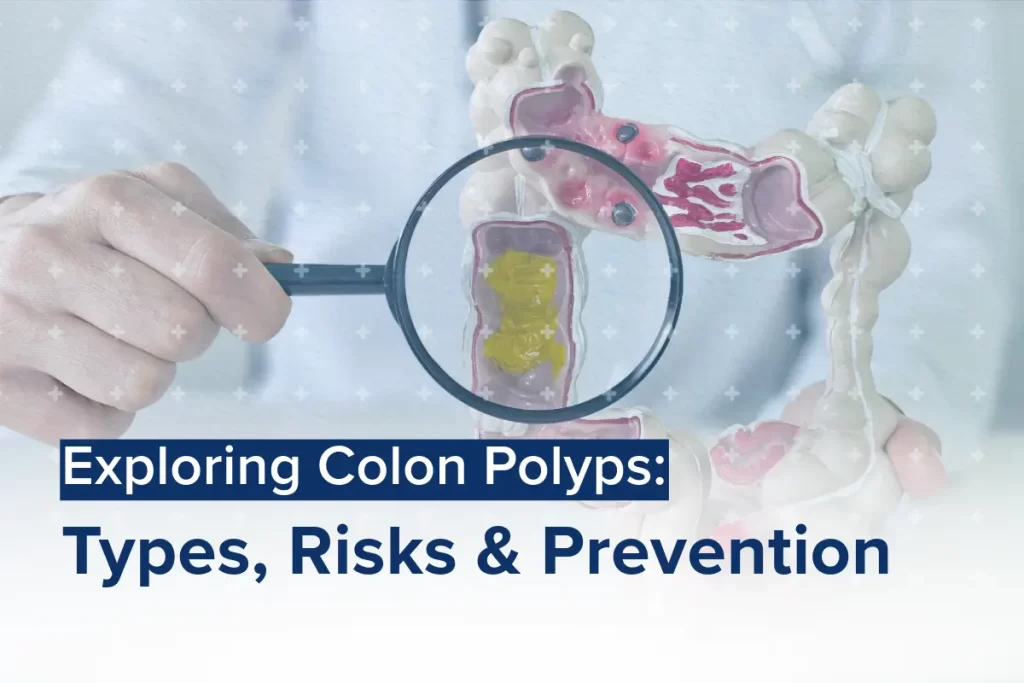As with many aspects of maintaining good health, your diet plays a crucial role in colon health. While we may often hear about a “heart-healthy” diet, did you know that certain foods also impact the health of your colon? Some foods support digestive wellness and improve bowel regularity, while others can lead to inflammation or discomfort and may even pose a risk factor for colorectal cancer.
Preparing for a colonoscopy is just as important as maintaining a colon-healthy diet. For those who are getting ready for a procedure, following the right preparation steps can make all the difference in ensuring accurate results and a smoother experience.
Check out our Colonoscopy Prep Tips: Guide to a Smooth Procedure to learn how to get ready for your colonoscopy effectively.
Additionally, after your procedure, you may have some questions about what to expect during recovery. Our Common Questions to Ask After a Colonoscopy article covers frequently asked questions to help you feel confident and well-informed post-colonoscopy.
Let’s explore the essential elements of a “colon-care” diet and how it can benefit your health.
Table of Contents
- The “Colon-Care” Diet
- High-Fiber Foods
- Probiotics
- Antioxidant-Rich Foods
- Omega-3 Fatty Acids
- Hydrating Foods
- Foods to Limit or Avoid for Colon Health
- Maintaining the “Colon-Care” Diet
- ColonoscopyAssist: Your Partner in Colon Health
- Final Thoughts on Colon Health
The “Colon-Care” Diet
A variety of food groups contribute to maintaining a healthy colon. By incorporating fiber-rich foods, probiotics, and anti-inflammatory options, you can better support your colon and overall health.
High-Fiber Foods to Eat
Foods high in fiber contain insoluble fiber, which adds bulk to stool and encourages regular bowel movements, promoting colon health and bowel regularity. Key high-fiber foods include:
- Fruits: Bananas, apples, pears, citrus fruits, and berries
- Vegetables: Leafy greens, broccoli, sweet potatoes, carrots, and Brussels sprouts
- Nuts & Seeds: Walnuts, almonds, flaxseeds, chia seeds
- Legumes: Beans, lentils, peas, soybeans, and chickpeas
- Whole Grains: Brown rice, quinoa, whole wheat, and whole-grain bread
High-fiber foods benefit colon health by helping to prevent constipation and support weight management, and they are also beneficial for gut microbiome health.
Probiotics
Probiotics are live bacteria found in fermented foods such as yogurt, sauerkraut, kimchi, miso, and kombucha. They support a healthy gut microbiome—the collection of microorganisms in the digestive tract. Probiotics improve nutrient absorption, aid digestion, and help reduce inflammation. They may even support mental wellness by helping to regulate anxiety and depression.
Antioxidant-Rich
Antioxidants protect the body from free radicals, unstable molecules that can cause cell damage and accelerate aging. In the context of colon health, antioxidants reduce inflammation and support cellular health. Examples of antioxidant-rich foods include:
- Vitamin C, Vitamin E, and Beta-Carotene: Found in citrus fruits, broccoli, nuts, leafy greens, carrots, and bell peppers
- Selenium and Zinc: Found in Brazil nuts, meat, seafood, eggs, dairy, and whole grains
- Polyphenols: Found in fruits, vegetables, coffee, tea, and whole grains
Omega-3 Fatty Acids
Omega-3s are beneficial polyunsaturated fats found in foods like nuts, seeds, and fatty fish (e.g., salmon and mackerel). They contribute to colon health by offering anti-inflammatory properties and promoting the growth of helpful bacteria in the gut microbiome. They also support cellular health and prevent constipation, helping to maintain bowel regularity.
Hydrating Foods
Foods high in water content, like watermelon, cucumber, citrus, and zucchini, are beneficial for bowel regularity and gut health. Proper hydration aids digestion, promotes nutrient absorption, and supports the mucosal lining of the gut, which is crucial for a healthy gut microbiome.
Foods to Avoid for Colon Health
Certain foods can negatively impact colon health and increase the risk of colon cancer. Limiting these foods can reduce inflammation, support a healthy gut microbiome, and promote digestive wellness:
- Red and Processed Meats: Red and processed meats contain saturated fats, which promote inflammation. Processed meats often contain nitrates, which can become cancer-causing agents in the digestive process.
- Fried and Fatty Foods: These foods often lack fiber and are high in trans fats, which harm the gut microbiome and may contribute to inflammation and constipation.
- Refined Sugars and Processed Foods: These can lead to chronic inflammation, harm good bacteria, and increase risks of constipation and diverticular disease.
- Alcohol: Alcohol can damage the gut lining, limit the growth of beneficial bacteria, and increase the risk of colorectal cancer.
- Artificial Sweeteners: Certain artificial sweeteners can lead to gas, bloating, and inflammation, as well as disrupt the balance of bacteria in the gut.
Maintaining the “Colon-Care” Diet
A balanced diet that includes a variety of nutrient-dense foods is essential for long-term colon health and overall wellness. Many of the foods listed, such as citrus fruits, not only provide fiber but also supply antioxidants and hydration, which can contribute to multiple aspects of digestive wellness. A balanced approach to nutrition, focusing on whole foods from fruits, vegetables, whole grains, lean proteins, and healthy fats, supports both gut microbiome and overall health while aiding in cancer prevention.
ColonoscopyAssist: Your Partner in Cancer Prevention
ColonoscopyAssist is dedicated to making colonoscopies and other gastrointestinal procedures accessible and affordable for those without insurance or who are self-paying. Our program supports those committed to digestive wellness and colon health by offering affordable screening options to reduce the risk of colon cancer.
Final Thoughts on Colon Health
Now that you know about the “colon-care” diet, you might find that incorporating it into your daily life is easier than expected. Many of these foods are likely ones you already enjoy; it’s simply a matter of making them a regular part of your routine.
By following a balanced diet and avoiding foods that can harm the gut microbiome and increase inflammation, you’ll be supporting your colon health and your overall wellbeing. Pairing these choices with regular screenings can help keep your colon healthy for years to come.



























